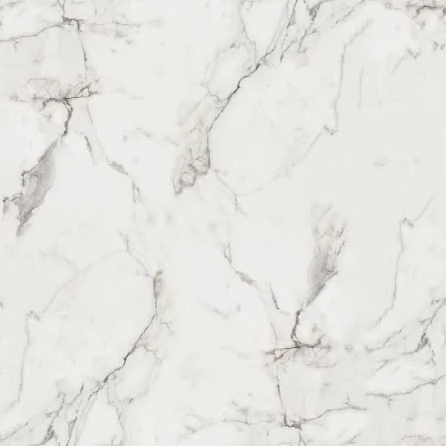
Artificial marble, also known as engineered or cultured marble, is a composite material made from a blend of stone particles, resins, and pigments. Here's a general overview of the fabrication process:

Raw Materials Selection: The primary ingredients include crushed marble or other stone aggregates, polyester resin, and pigment. The quality and properties of these raw materials significantly impact the final product.
Mixing: The stone aggregates are mixed with the polyester resin and pigment in precise proportions. The mixture should be homogeneous to ensure uniformity in color and texture.
Molding: The mixed materials are poured into molds of various shapes and sizes, depending on the desired final product. These molds may be coated with a release agent to facilitate easy removal of the finished product.
Curing: Once filled, the molds are moved to a curing chamber where the chemical reaction between the resin and the hardener takes place. This process typically involves controlled temperature and humidity conditions to ensure proper curing and minimize defects.
Demolding: After the curing process is complete, the solidified marble panels or slabs are removed from the molds. Care must be taken during this step to avoid damaging the delicate surfaces.
Trimming and Finishing: Any excess material or rough edges are trimmed off, and the surfaces are polished to achieve the desired smoothness and shine. Additional finishing touches, such as sealing or applying a protective coating, may also be performed at this stage.
Quality Control: Throughout the fabrication process, rigorous quality control measures are implemented to identify and address any defects or inconsistencies. This may include visual inspection, dimensional checks, and performance testing to ensure that the final product meets the specified standards.
Packaging and Shipping: Once the artificial marble products pass inspection, they are carefully packaged to prevent damage during transit and shipped to distributors, retailers, or directly to customers.
The fabrication process for artificial marble can vary depending on the specific manufacturer and product requirements, but these are the fundamental steps involved in creating high-quality engineered stone surfaces.
Artificial marble fabrication has a wide range of application scenarios across various industries due to its versatility, durability, and aesthetic appeal. Here are some common applications:
1. Interior Design: Artificial marble is extensively used in interior design for residential and commercial spaces. It can be fabricated into countertops, vanity tops, flooring tiles, wall panels, and decorative accents. Its ability to mimic the look of natural stone while offering more consistent color and pattern options makes it a popular choice for architects and designers.
2. Bathroom and Kitchen Fixtures: One of the primary applications of artificial marble is in the fabrication of bathroom and kitchen fixtures such as sinks, shower trays, bathtubs, and backsplashes. These surfaces are not only durable and easy to clean but also add a touch of elegance to the space.
3. Furniture and Decor: Artificial marble can be shaped into various furniture pieces such as tabletops, coffee tables, and side tables. Its versatility in design and ability to blend seamlessly with different decor styles make it a preferred material for modern furniture and decor items.
4. Retail and Commercial Spaces: In retail environments, artificial marble is often used for display counters, reception desks, and other decorative elements to create a luxurious ambiance. Similarly, in commercial spaces such as hotels, restaurants, and offices, it is used for flooring, wall cladding, and decorative features to enhance the overall aesthetic appeal.
5. Public Spaces and Institutions: Artificial marble finds applications in public spaces like airports, train stations, and museums for its durability and low maintenance requirements. It can be used for flooring, wall coverings, and architectural elements to create visually appealing and functional environments.
6. Art and Sculpture: Some artists and sculptors utilize artificial marble for creating sculptures, statues, and art installations due to its workability and ability to achieve intricate designs.
7. Exterior Cladding: While less common than its use indoors, artificial marble can also be used for exterior cladding in certain architectural projects. Its weather-resistant properties and ability to maintain color and texture over time make it suitable for outdoor applications in moderate climates.
Overall, the versatility, durability, and aesthetic qualities of artificial marble make it a preferred choice for a wide range of applications across industries, contributing to its widespread use in contemporary design and architecture.